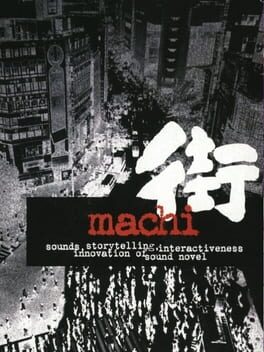

Machi is a story of 8 unrelated protagonists, all with their own problems and objectives, all living in the Shibuya district of Tokyo, Japan. The story spans 5 in-game days and is told through a huge number of live-action still photographs. Each of the protagonists lead a completely different story that even defies genres. The player must play all of the stories in parallel, jumping across different protagonists, and backtracking to re-select branches which not only affect the active protagonist, but also other protagonists through often bizarre twists of causality.
Reviews View More
Compared to 428, this game does not have an overarching thread that ties all the characters together. They cross path with each other, which is the base for the game's jump system, but ultimately each one reaches their own ending. While some might find this narrative structure not engaging enough, it does allow the game to explore a wider range of topics and styles. One second it's The Comedy of Errors, the next it turns into Kafka. It intrigues and bewilders, amuses and depresses, surprises and scares. It's unabashedly random and loose, and remains unique and fun for the same reason. It's 90s era Tokyo in videogame form.
A groundbreaking adventure game on release, but now shows its age. The entire game is live action and set in Shibuya sometime in the mid 90s. The main gimmick is that there are 8 protagonists you can choose from, and progressing in one character's scenario can alter the fate of another as you jump between characters. There are 100+ bad endings that are mostly unique. And that's really what makes this game notable, because unfortunately the quality of the stories doesn't stand out on its own ー it's mainly B-tier TV dramas and bad comedy. I had to push myself to get through some stories, especially Yoshiko's, whose story is almost nothing but slapstick fat jokes ad nauseum. Unfortunately some of the ones that start interestingly, like the secret society plot, fall completely flat in the end. The one story I liked was Ichikawa's, the jaded TV writer. It stands out from the rest by being psychological horror and the writing quality is great. Overall, the experience of playing it is good, especially if you're interested in learning about 90s Japan/pop culture and the evolution of visual novels as a genre, but difficult to recommend if you're looking for a story worth your time.
